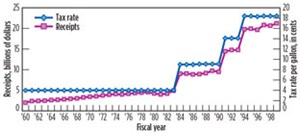What's new in exploration
The headline above was a quote from a V.P. of Anadarko at a recent subsea-oriented conference. Well, that may not be an “ah hah” moment for you, but apparently it was for a large room of subsea construction engineers, because I witnessed many nodding their heads in agreement. There is nothing big and new in deepwater coming down the pipeline, and current contracts in the Southeast Asian shipyards are nearing completion.
Further, the V.P. stated that now, 2016, is an historical buying opportunity for deep water. This is true for those [who still have people] with any technology that can be developed, and applied, over the normal project life of an upcoming, seven-year planned development. Now, that is ah hah! The obvious “cash IS king” only matters, if where you put that cash could make you THE KING.
His observation made me think, since engineers and most managers are risk-adverse by training and by nature, when making a decision to spend millions and millions on a deepwater project, just how many times did each person add a “risk factor” to their, ahem, recommendation? Well typically, each engineer believes in a 3x safety factor [aka gold plating]. However, normal geologists are such optimists on estimated reserves as to embarrass even Mary Poppins. Combining “don’t fire me for too-small reserves estimates,” and management’s aversion to career risk, has created opportunity.
I would venture an opinion: While initial discussion of reserves is usually overstated [plus 2x], even using drilled, one-or-two-well PUD reserves, by the time everyone is sure they won’t get fired for ordering the building and floating of a refinery offshore, a volumetric conversion of times 0.333 is used to normalize the reserves. In-place reserves can still be enormous!

Conclusion, there should still be a lot of room for brownfield work offshore. A Research Partnership to Secure Energy for America (RPSEA) report by Knowledge Reservoir confirmed this: IOR for deepwater Gulf of Mexico, RPSEA subcontract #07121-1701, final report. Thankful, we are today, for persistence demonstrated by the history of development of the Qatar Arch, Noble Energy’s finds in Israel, and others at Sakhalin Island.
How to pay for exploration: Plan A, B…T: Your tax dollars at work? Tax credits for exploration work every time. Tax relief encourages entrepreneurship. Governmental/public financial participation, in some form or another in E&P, usually results in more affordable reserves that are safely discovered and produced. Positive outcome usually results for any government working with/for its people. However, windfall taxes on oil, or anything else similar, are stupid, onerous, and slam shut capital development. We did this in the U.S., when oil went from $3/bbl to $8, and then to $15. Other governments did the same. Making oil more expensive? Wow, it really helped us out of that hole. An excise oil tax did not work either, did it?
So, why are we still taxing ourselves, suppressing activity, and maybe sending ourselves out of business? The answer, according to the U.S. IRS, is revenue. The tax monkey is at retail. Tax is money that the final consumer always ends up paying. But, the consumer blames oil companies for retail fuel prices. At $2/gal of gasoline, £7/liter of petrol, or 47 pesos/pint, no one likes the price. The public, through their governmental representatives, control YOUR company, and its exploration program. Thank you to API, for spending dollars on public advertising that emphasizes the “Energy Voter.”
Taxes take away funds from our industry for E&P, safety and environmental protection. How much of BP’s $40-billion penalty went to fish and birds, or back to the oil industry for actual safety and environmental mitigation?
Since 87% of all oil and gas on this planet is owned by a government, someone’s taxes are always at work globally to produce and deliver that oil. The U.S. Energy Policy Act of 2005 channeled some U.S. mineral royalty tax to research under the Section J, 999 programs. As a few big oil folks tell me, they paid the tax, and since it’s their money, they should have a say in controlling what is being done with it.
Well, that argument was lost in the courts a long time ago. Here is the bare economic truth—no private oil company has ever paid one dollar in tax. You did. The consumer always pays the cost. Always. Oil pays its tax due from revenue. Revenue is a pass-thru from the ultimate consumer, the last one at the pump—you and me. On a per-gallon basis, government—federal, state and local—gets the majority of the consumer’s dollar, every time, in every country. It’s no accident that the political entities of the world want the consumer to look at us for fault, instead of their tax practices. We need to change the consumer’s perspective, especially since we face a long-term period of exploration in a richly supplied oil and gas market. ![]()



